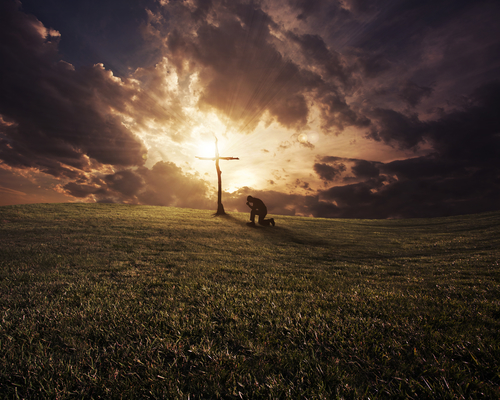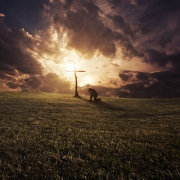Beweise für Gottes Macht
Hier klicken für einen kostenlosen Buch-Download von Inga-Lill Guzik’s Buch
“Light, Peace, and Hope for Your Christmas”
Es kam aber Furcht über alle Seelen, und viele Wunder und Zeichen geschahen durch die Apostel. (Apostelgeschichte 2,43)
Viele von uns fragen sich, wie es wohl wäre, einige der großen Ereignisse der Geschichte mitzuerleben. Zum Beispiel bedeutsame Schlachten, Durchbrüche, Erfindungen, Triumphe und Tragödien.
Das Leben in der frühen Gemeinde ist eine der Zeiten, in die ich gerne reisen würde, um sie mitzuerleben. Nur beim Lesen von Apostelgeschichte 2, was dort und danach passiert, durchfährt mich eine Begeisterung – es wäre toll, das im Alltag erleben zu dürfen, selbst wenn es nur für eine bestimmte Zeit wäre.

Hier in Apostelgeschichte 2,43 werden zwei bedeutende Dinge genannt, die in dieser aufregenden Zeit passierten. Zuerst lesen wir, es kam aber Furcht über alle Seelen. In der Hoffnung für Alle Übersetzung steht: Eine tiefe Ehrfurcht vor Gott erfüllte alle Menschen. Das an sich war eine Beweis für die Macht Gottes. Diese Menschen, die einst Jesus abgelehnt hatte, hatten ihre Meinung über Ihn komplett geändert. Nun nahmen sie Ihn als Messias, Retter und Herrn an. Darum ehrten sie Jesus und Seine Nachfolger.
Eines der größten, machtvollsten Dinge, die Gott tun kann, ist, das Herz eines Menschen zu verändern, dass es Gott ehrfürchtig ehrt. Diese Furcht, die über alle Seelen kam (oder eine tiefe Ehrfurcht) bedeutet, dass es keine leichte, oberflächliche Sache war. Es gab Freude, doch kein Lachen oder Albernheit. Die Menschen verstanden, dass ein großer Gott ein machtvolles Werk tat.
Wir lesen auch, viele Wunder und Zeichen geschahen durch die Apostel. Als Jesus in den Himmel hinauffuhr, war Er nicht fertig damit, wundersame Dinge auf der Erde zu tun. Ich glaube, dass selbst heute Gott noch nicht fertig damit ist. Wir haben keinen Hinweis darauf, dass dies bedeutete, dass auch die Apostel jederzeit ein Wunder „vollbringen“ konnten – so als ob die Macht der Wunder in ihnen ruhte. Stattdessen sehen wir, dass Gott festsetzte, dass solche Wunder geschehen sollte, und die Apostel waren die bereitwilligen Diener, die sie ausführten.
Diese zwei Dinge – die veränderten Leben (es kam aber Furcht über alle Seelen) und die wundersamen Werke (viele Wunder und Zeichen) waren die Beweise für Gottes Macht. Wo Gott am Werk ist, werden Leben auf wundersame Weise berührt. Wir können Gott nicht vorschreiben, welche Wunder geschehen sollen und wie Er sie machen soll, doch wir werden veränderte Leben und Beispiele für Gottes Macht sehen.
Wenn ich mir die heutige christliche Welt anschaue, dann sehe ich viele Menschen, die sich über Zeichen und Wunder und andere offensichtliche Dinge freuen. Ich verstehe, warum. Wenn es um wahre Wunder geht, die Gott die Ehre geben, will ich mehr davon sehen und nicht weniger!
Ich wünschte mir, dass mehr Christen es wollen, dass Furcht über alle Seelen kommt – einschließlich ihres eigenen Lebens! Lasst uns daran glauben, dass Gott große Dinge tut und überlassen wir Ihm die Sache mit den Wundern. Doch jeder von uns kann demütig in Ehrfurcht zu Ihm kommen. Lasst uns das heute tun.







